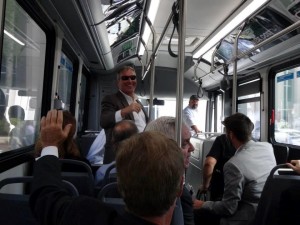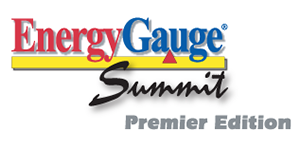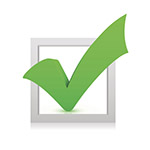COCOA, October 31, 2014
Mayor Buddy Dyer was the guest of honor this week aboard a zero-emission electric passenger bus during its Orlando tour stop. The Catalyst, a 40-passenger battery-electric bus manufactured by Proterra, picked up the mayor and several of his staff at City Hall for a quick trip around downtown Orlando. The Central Florida stop was one of only a few remaining demonstrations taking place on its way back home to Greenville, SC after a cross-country tour.




